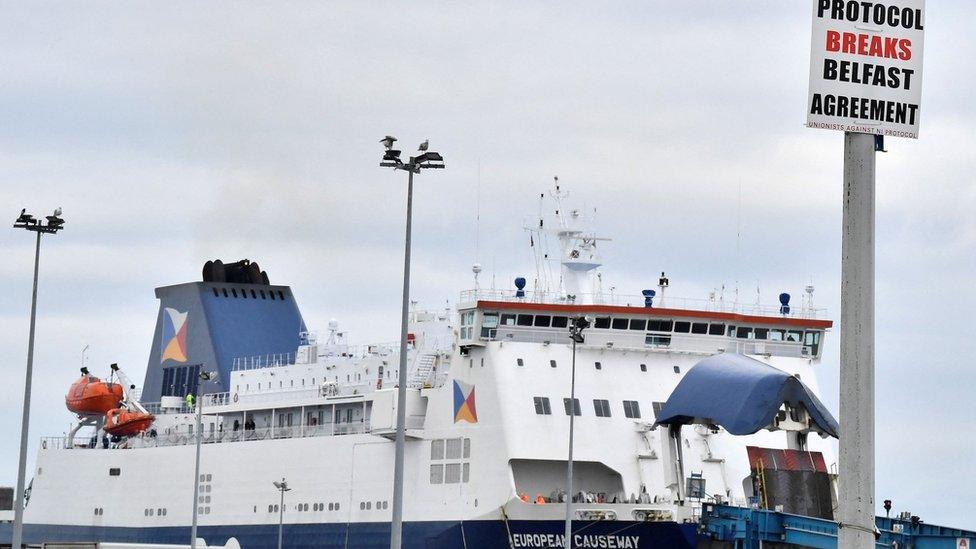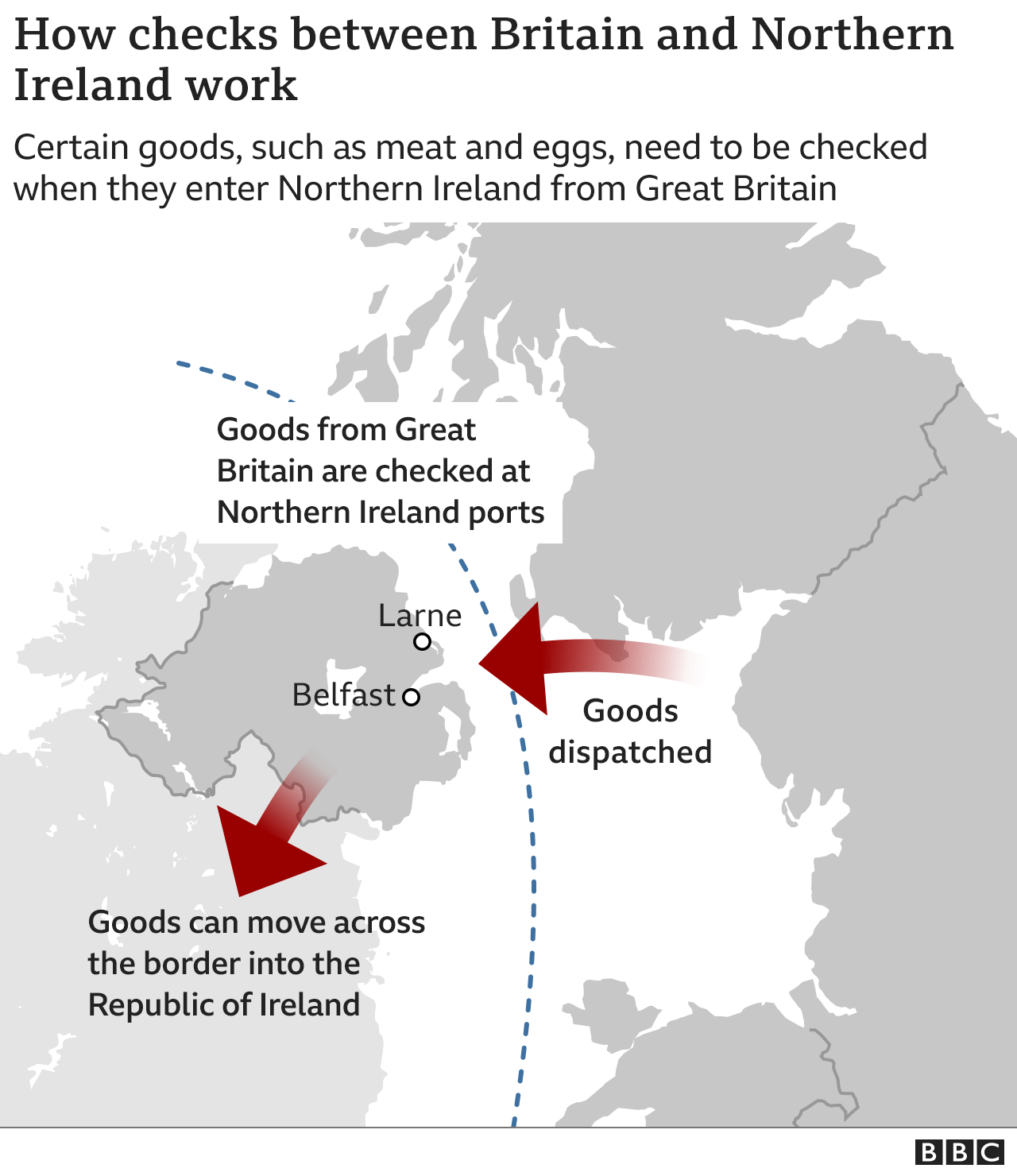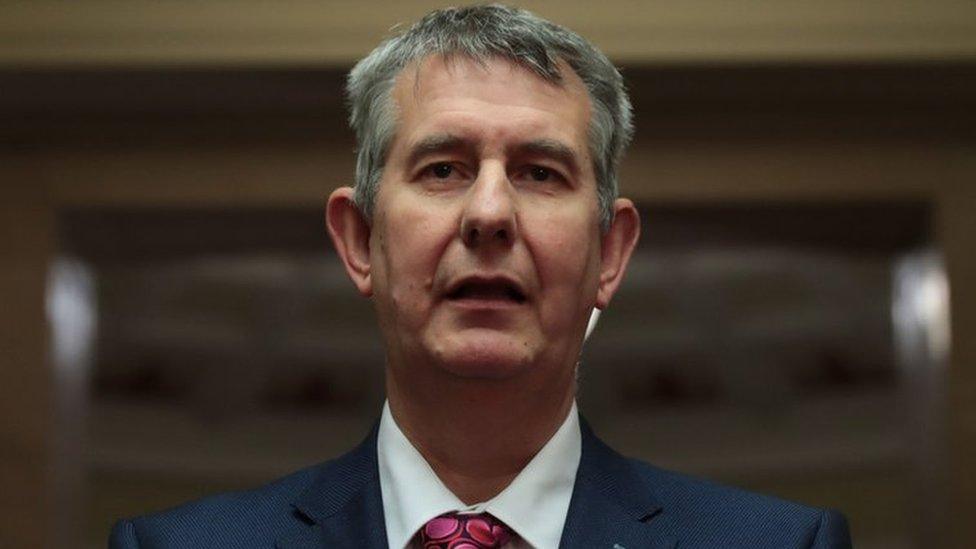Brexit: Irish Sea border checks 'not fit for purpose'
- Published

Checks on goods from Great Britain take place at Northern Ireland ports to make sure they comply with EU laws
The system for checks on agri-foods at Northern Ireland's sea ports is "not fit for purpose", according to an audit carried out by the European Commission.
The draft report, external, based on examinations in June last year, said the processes did not comply with EU rules.
It said the root of the problem was inadequate resources.
Under the Brexit deal, certain goods need to be checked when they enter Northern Ireland from Great Britain, which is no longer in the EU.
As part of that deal - known as the protocol - Northern Ireland remained aligned with the EU single market for goods as a way to ensure the free movement of trade across the Irish border.
Checks on GB goods take place at Northern Ireland ports to make sure they comply with EU laws.
The commission's audit said the checks could not "provide sufficient assurances that only compliant animals and goods are permitted to enter the EU SPS (Sanitary and Phytosanitary) area through the designated border control posts in Northern Ireland".
It said the main issue was a lack of resources.
The report said the UK government had "failed to ensure that sufficient resources - human and structural - have been made available to the responsible competent authorities in Northern Ireland".
The recommendations include:
Introduction of proper facilities
Ensuring the authorities have or have access to a sufficient number of suitably-qualified staff
Better information sharing
Better systems for checking pets and personal agri-food products


Foreign Secretary Liz Truss met business leaders and politicians in Belfast on Thursday to discuss the protocol.
The government has been attempting to renegotiate the agreement which it made with the EU in 2019.
Ms Truss said her aim was to find "a deal that works for everyone".
She has previously said she would like to see "significant progress" in talks with the EU by February.
Irish Foreign Minister Simon Coveney spoke with Ms Truss on Friday and said there were "landing zones" for a deal.
Allow X content?
This article contains content provided by X. We ask for your permission before anything is loaded, as they may be using cookies and other technologies. You may want to read X’s cookie policy, external and privacy policy, external before accepting. To view this content choose ‘accept and continue’.

Unionists are strongly opposed to the Irish Sea border checks because they do not want Northern Ireland to be treated differently to the rest of the UK.
Earlier this week, Stormont's Agriculture Minister Edwin Poots took the first step in his bid to halt the checks.
He submitted a paper to seek executive approval for the border checks to continue.
He has threatened to halt the checks if the paper is blocked from the next meeting of ministers, something which Sinn Féin has vowed it will do.
It comes ahead of a legal challenge which argues the checks are controversial and cut across various departments, so would need executive approval.
Related topics
- Published2 February 2024

- Published25 January 2022
